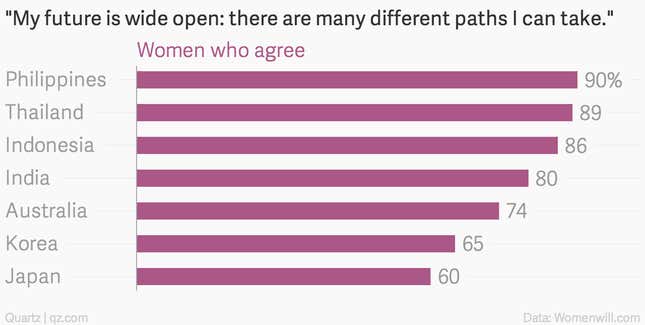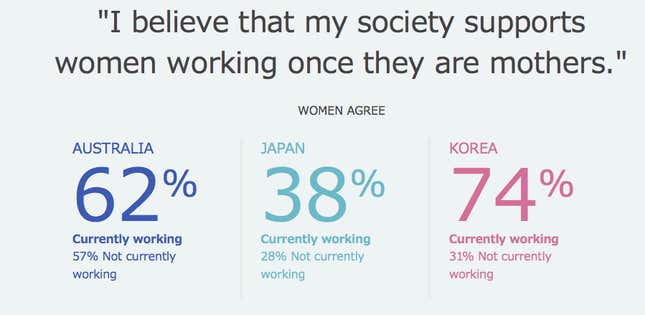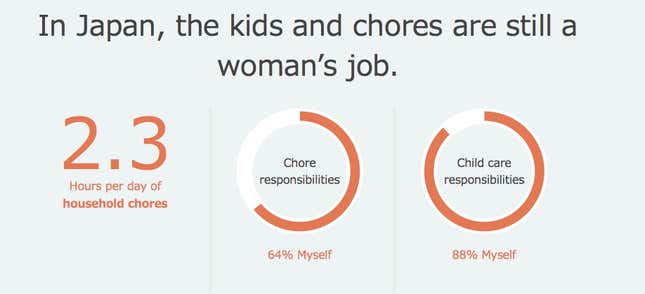Despite a nation-wide push to get more women into the workforce, Japanese women believe they have less personal choice over their own destinies, and less support from society when they become working mothers, than in many other countries in Asia, a recent Google survey shows.
Google interviewed about 5,600 women around Asia on internet use, how it can help them work inside and outside the home, and the support they get from partners and employers as part of a project called Women Will.
Women in Japan are some of the most internet-savvy in Asia, with 93% using the internet daily. But they believe they have less freedom than women in the rest of the Asian countries surveyed, at least when it comes to controlling their own destinies:

And more Japanese women say their society is not supportive of working mothers than in any other developed Asian country:

In Japan, the “work-life balance has yet to change from slogan to reality,” the Google study found. Women in Japan say they still do most of the household chores and nearly all of the childcare.

And maybe that’s why once they have children, about two-thirds of Japanese women quit working (link in Japanese). That’s despite the fact that more than 60% of Japanese women believe it is important for women to have a role outside the home.
Last year, Japan’s prime minister Shinzo Abe announced a raft of new “women friendly” proposals to support women who want to return to the workplace, which could add significantly to the country’s economy. But as Quartz reported, what Japanese women really need isn’t policies like more maternity leave that Abe proposed—it’s longer paternity leave, so they can return to work more quickly, and get help with the kids once they do.
